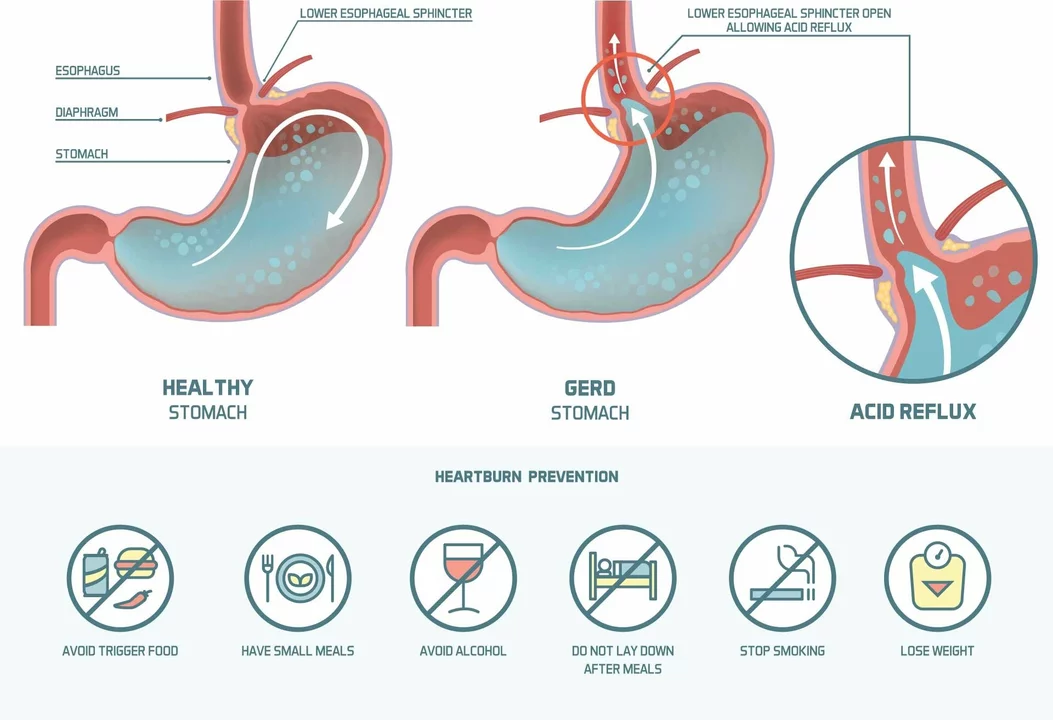Chest Congestion Relief – Simple Tips You Can Use Today
If your chest feels heavy and you keep coughing up mucus, you’re probably dealing with chest congestion. It’s a common annoyance that can make everyday tasks feel harder than they need to be. The good news is most cases clear up on their own or with a few at‑home steps. Below we’ll break down why it happens, what you can do right now, and when a doctor’s visit becomes necessary.
What Causes Chest Congestion?
Chest congestion usually starts when the airways produce extra mucus to trap irritants like dust, pollen, or germs. Cold viruses, flu, bronchitis, and allergies are the top culprits. Smoking, dry indoor air, and even sudden changes in temperature can thicken that mucus, making it harder to clear.
When your body fights an infection, inflammation swells the lining of the lungs and bronchi. That swelling narrows the passageways, so you feel short‑of‑breath or hear a rattling sound when you breathe. In most cases the immune system will shrink the inflammation after a few days, but during that window the congestion can be uncomfortable.
Quick Home Remedies That Work
Steam inhalation: Fill a bowl with hot water, drape a towel over your head, and breathe in the steam for 5‑10 minutes. The warm vapor loosens mucus so you can cough it out more easily.
Stay hydrated: Water, herbal tea, or clear broths thin the mucus, making it less sticky. Aim for at least eight glasses a day, especially if you have a fever.
Warm liquids: A cup of honey‑lemon tea or warm broth can soothe irritated throats and encourage gentle coughing to clear the chest.
Chest percussion: Gently patting your back while leaning forward helps shake loose mucus. Ask a partner or use a soft pillow to tap each side for a minute.
Humidifier: Adding moisture to dry indoor air reduces irritation and keeps the airway lining supple. Keep the device clean to avoid mold growth.
If you’re over 60, have asthma, COPD, or a weakened immune system, consider an over‑the‑counter expectorant like guaifenesin. Follow the label instructions and watch for any side effects.
Most chest congestion improves within a week. However, if you notice any of these signs, call your doctor: high fever lasting more than three days, blood in sputum, persistent shortness of breath, or chest pain that worsens with deep breaths. Those symptoms could mean an infection needs antibiotics or another specific treatment.
While you wait for relief, try to rest and keep activity light. Avoid smoking and stay away from heavy‑smelling chemicals. Simple lifestyle tweaks—like using a nasal saline rinse before bed—can also cut down post‑nasal drip that feeds chest mucus.
Chest congestion can be annoying, but with the right tools you can clear it fast. Keep these tips handy, listen to your body, and don’t hesitate to get professional help if symptoms linger or worsen.

As a blogger, I recently discovered the surprising link between chest congestion and acid reflux. It turns out that acid reflux can actually cause chest congestion due to stomach acids irritating the airways and causing inflammation. This inflammation can lead to an increased production of mucus, which can result in chest congestion. I was shocked to learn that managing acid reflux could help alleviate chest congestion for some individuals. It's essential to consult a doctor if you're experiencing these symptoms, as proper treatment can improve your overall health and well-being.
Read more
